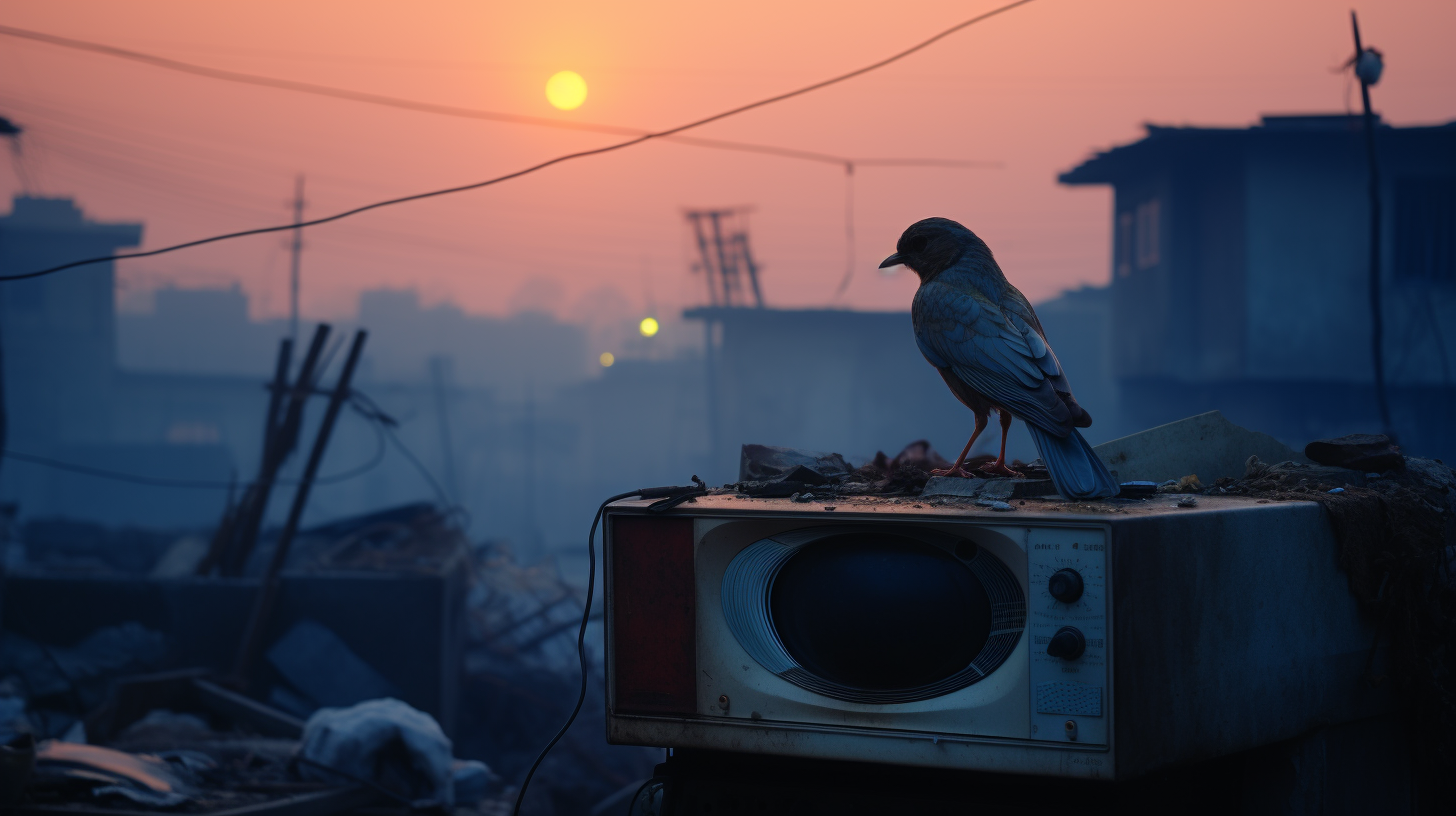Imagine a morning where the sunrise doesn’t summon the symphony of songbirds, where the only chorus to greet the day is a hollow silence. In this harrowing reality of our climate-battered world, the vanishing cadences of avian melodies are a dire omen, a quietus whispering through the trees. The disappearance of birdsong isn’t just a loss of nature’s music; it is the sound of an ecosystem in peril.
Birds are nature’s troubadours, heralding the turn of seasons and the health of our world. From the enduring calls of the forest dwellers to the coastal caws of seabirds, each note tells a story of life’s intricate tapestry. But the once-rich medley is being muted, suffocated by the gnarled fingers of climate change and environmental devastation.
In areas where trees once stood tall and flora abounded, stands now a monochrome landscape—scarred by wildfires, stripped by deforestation, and parched by droughts. Where pollinators, like our monarch butterflies, face their dusk, birds too share this bleak horizon. These fateful changes ripple through the habitat: without trees, insects decline; without insects, birdsong dwindles into a despondent hush.
Recent studies have shown a staggering decline in bird populations. The causes are myriad and entwined, a Gordian knot of human impact and ecological collapse. Fragmented habitats and poisoned skies from relentless industrial exhalations render the once familiar patter of wings and chirps into ghosts of a greener past. Cities, ironically now refuges, offer small solace as some species adapt to urban nesting sites amidst steel and concrete — yet this is the exception, not the rule.
In this desolate soundscape, conservationists labor to combat silence with rewilding efforts and protected corridors, hoping to reconnect fragmented wilds. But these are mere stitches in a broader tapestry unravelling faster than it can be repaired. The chorus of conservation, while noble, resonates in a hall of already-fading echoes, a requiem for the skies.
Today, silence spreads its wings. It’s not only the songs we’re losing, it’s the call and response of ecosystems teetering on the brink. Birds are pollinators, predators, prey, and participants in nature’s grand symphony—an irreplaceable chorus once vibrant, now stifling in the pressing stillness of the Anthropocene.
Amidst the ever-increasing crescendo of human activity, our feathered sentinels flounder. The murderous march of climate change orchestrates a paradox: as urban jungles grow, we wonder what beauty remains when forests retreat, what whispers are left when Gaia gasps her last. Our world, laced with relentless echoes of industrial cacophony, yearns for the lost songs of avian souls soaring above.
The disappearance of birdsong is a tragedy unfolding in silent and heartrending stanzas. It’s a relentless reminder that, in our dystopian present, the serenade of nature is ceasing. We are called to listen, to hear the absence, to feel the void. It is more than music that fades; it is a signal that our planet is gasping, struggling, dying—a requiem for an Earth we once knew.
In a world where the sounds of life should permeate every corner, we’re left pondering, what haunts the eerie quiet? Will we act only when the silence is total, or will reflection spur us to restore nature’s magnum opus? Perhaps, in this grim tale, there is no encore; the birds’ final bow is taken without applause, beneath a spotlight of neglect.
In the heart of this silence, we find our call to action. For the birds, for ourselves, and for the future that still holds a glimmer of possibility. The absence of birdsong is not just a eulogy of what once was, but also a siren for what could still be—if only we choose to act before the curtain falls for good.
Hear the silence; let it move you to action.
